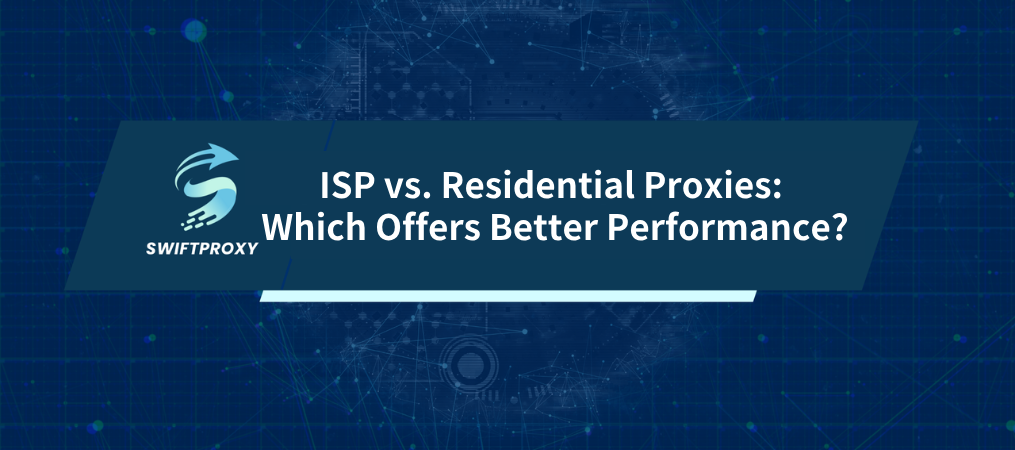ISP vs. Residential Proxies: Which Offers Better Performance?

In the digital age, proxy servers have become an important bridge between users and the Internet. They not only help users bypass geographical restrictions, but also provide a certain degree of anonymity and security. However, among the many types of proxies, ISP proxies and residential proxies often confuse users. So, which one is better, ISP proxy or residential proxy? This article will explore this in depth to help you make a wise choice.
Advantages of ISP Proxy
ISP (Internet Service Provider) proxy is a proxy service provided by an Internet service provider. This type of proxy usually uses the IP address of the data center, so it has significant speed and stability advantages. For daily browsing, downloading, streaming and other needs, ISP proxy can provide a smooth and unimpeded network experience. In addition, due to its large-scale deployment and efficient management, the cost of ISP proxy is relatively low, suitable for users who have high requirements for network speed and limited budget.
Disadvantages of ISP Proxy
However, the disadvantages of ISP proxy cannot be ignored. Due to the characteristics of its data center IP, some websites and services may identify it as proxy traffic, thereby implementing restrictions or blocking. This can be a challenge for users who need a high degree of anonymity, especially when performing sensitive operations or visiting specific websites.
Advantages of Residential Proxy
Unlike ISP proxy, residential proxy uses the IP address of real users. These addresses are assigned to home users by Internet service providers, so they have extremely high anonymity and authenticity. Residential proxy can simulate the online behavior of real users, making it difficult for websites and services to identify it as proxy traffic. This makes residential proxy excellent in tasks such as web scraping, market research, social media management, and evading strict security measures of websites.
Disadvantages of Residential Proxies
However, the cost of residential proxies is higher than that of ISP proxies. Since they rely on real equipment rather than dedicated proxy servers, the maintenance and operation costs are relatively high. In addition, since the IP addresses of residential proxies come from different geographical locations and network environments, their performance and stability may not be as good as ISP proxies. This may become a limiting factor when performing large-scale data collection or tasks that require high-speed network connections.
How to choose between ISP proxy and residential proxy?
So, how should you choose between ISP proxy and residential proxy? It all depends on your specific needs and budget.
- If you need a fast, stable network connection and don't require high network anonymity, then ISP proxy may be a better choice. It can provide a smooth network experience while being relatively low in cost.
- If you need a high degree of anonymity, simulate real user behavior, or perform specific tasks (such as web scraping, market research, etc.), then residential proxy may be more suitable for you. It can provide extremely high anonymity and security, and although the cost is higher, it is worth it for users who need these features.
When choosing a proxy, in addition to considering speed and anonymity, you should also consider other factors such as the reliability of the proxy service, customer support, price, and whether it supports the specific applications or services you need to use. By comprehensively evaluating these factors, you can find the type of proxy that best suits you.
Conclusion
ISP proxy and residential proxy have their own advantages, and there is no absolute "which one is better". They each have unique advantages and applicable scenarios. When choosing, be sure to weigh them according to your specific needs and budget. Whichever proxy type you choose, make sure it meets your online needs and provides the anonymity and security you expect.

















































